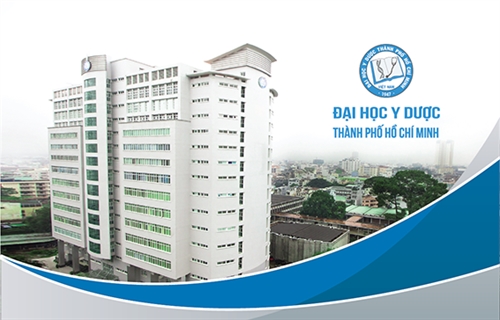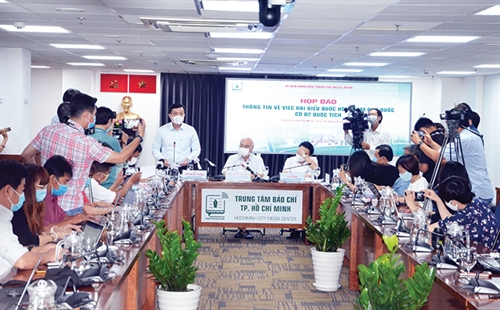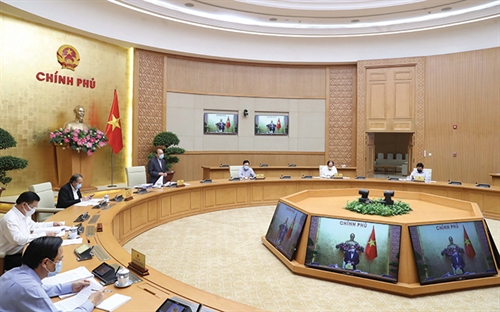Dau Anh Tuan
Director of the Legal Department
Vietnam Chamber of Commerce and Industry
During the past time, the Party and State have paid great attention to the formulation and improvement of the legal system. Hence, remarkable progresses and reforms have been seen and encouraging achievements attained, thus importantly contributing to the building of a law-ruled socialist state. The Government and Prime Minister have also considered the formulation and improvement of the legal system one of key and priority tasks in the cabinet’s leadership and direction work.
Role of business community in law-building work
The lawmaking process has been reformed to be more and more transparent, democratic and open with full participation of the public in policy-making activities. Particularly, the voice of the business community, the driving force of the economy, which is affected by laws and concurrently acts as a law enforcer, has been appreciated and become an important factor in policy shaping. Furthermore, Vietnam’s law has acknowledged the role and responsibility of the business community, via its representative being the Vietnam Chamber of Commerce and Industry (VCCI), in the process of formulating, improving and enforcing the business law as well as in negotiating and implementing the country’s international trade commitments.
 |
| Producing garments for export to Japan at Hung Viet Garment Joint-Stock Company in Hung Yen province__Photo: Tran Viet/VNA |
VCCI also reflects the voice and effective participation of the business community in the making of policies, negotiation for international trade commitments, and preparation for effective and sustainable international integration. Through diverse forms of consultation activities organized by VCCI, businesses may give their opinions on a wide range of subject matters, ranging from proposals for formulation of legal documents and orientations for negotiation, conclusion and ratification of agreements to draft legal documents or draft agreements which are going to be passed or concluded. VCCI also expresses enterprises’ opinions through appointing its representatives to join legal document-drafting boards, editing groups and appraisal/verification councils and attend meetings reviewing or proposing revision of legal texts.
In each of the past five years, VCCI received hundreds of requests for comment on draft documents from drafting agencies as well as appraising and verifying agencies and, in the reverse direction, made hundreds of recommendations developed on the basis of opinions of enterprises, trade associations and experts. Particularly, the business community was deeply involved in, and joined hands with, drafting agencies in the process of formulating important legal documents, including the Enterprise and Investment Laws, two fundamental laws of the business law system.
In 2016, when the Government issued a series of decrees guiding the implementation of the 2014 Investment Law regarding business conditions, VCCI worked closely with the Government Office, Ministry of Justice and drafting agencies to review and assess the reasonability, transparency and feasibility of every single business condition provided in these texts and, on that basis, proposed the annulment of numerous unreasonable ones.
In the field of international trade, since the role of the business community in negotiation and conclusion of trade agreements was acknowledged under Prime Minister Decision 06/2012/QD-TTg, VCCI has taken part in the negotiation and legal review for, and conclusion of, dozens of agreements, including those of great importance such as the Comprehensive and Progressive Agreement for Trans-Pacific Partnership (CPTPP), the Vietnam-EU Free Trade Agreement (EVFTA), the Regional Comprehensive Economic Partnership (RCEP), the Convention on the Settlement of Investment Disputes between States and Nationals of Other States (ICSID Convention) and other bilateral investment treaties.
In fact, VCCI in general and trade associations and businesses in particular could hardly take part in lawmaking activities without close coordination with state management agencies, drafting agencies and especially the Ministry of Justice and Government Office as appraisal/verification bodies. Not a few drafting agencies have proactively consulted the business community about draft legal documents, not only once but several times, during the drafting process. The business community, in its turn, has played a more and more active and proactive role in the formulation and improvement of the legal system which could be seen in the increase of both quantity and quality of contributed opinions. Many proposals and recommendations of businesses have been accepted by drafting agencies and included in legal documents.
Barriers to involvement of businesses in policy shaping, solutions
There remain some problems that hinder the participation of the business community in lawmaking activities.
Firstly, although policy consultation is opened for all stakeholders, the level of engagement in these activities varies among enterprises and enterprise associations as their ability in policy criticism remains limited.
Secondly, transparency in formulation of legal documents should be further increased. Despite recent improvements, there remain some points that need to be reviewed and reformed so as to create more opportunities for enterprises to participate in the formulation of legal documents. For example, the application of the fast-track procedures sometimes does not adhere to the spirit of the Law on Laws. Forms of public consultation are not friendly enough. Draft legal documents and accompanying reports are usually published in full texts without any analysis of and explanations about changes compared to the relevant existing policies. Drafting agencies seem to be more transparent about how opinions of enterprises are assimilated but public access to explanatory reports on these matters is still limited.
Thirdly, accountability for quality of legal documents should be enhanced. Generally, the quality of legal documents has been remarkably increased in recent times. However, quite a few provisions of legal documents are difficult to implement and in some cases cause difficulties or even damage to enterprises. This situation prompts the need for linking relevant agencies’ accountability with quality of legal documents.
Fourthly, enterprise-representing organizations’ resources for participation in policy-making activities are limited and, therefore, can hardly meet practical demands as well as expectations of enterprises. VCCI is not an exception.
Lastly, the quality of some law-making activities remains low. Policy proposals are sometimes too general while regulatory impact assessment reports fail to point out whether relevant policies could bring about benefits as expected. It is not to mention the fact that the coordination between drafting agencies and other agencies, VCCI included, is not always effective.
The role and responsibility of specialized research agencies and organizations in lawmaking activities have not yet received due attention and there is a lack of mechanisms to attract associations, economic organizations, socio-professional organizations and experts to participate in the research and assessment of policy needs, policy making, as well as formulation, appraisal and verification of draft legal documents.
In order to mobilize the participation of the business community in the lawmaking process in a more effective manner, there are several solutions that should be realized in the coming time.
First of all, the State should adopt policies and take measures to help enterprises and trade associations improve their capacity for policy criticism, together with increasing resources for organizations representing the business community to participate in formulation of legal documents.
The second thing to do is further transparentizing the process of formulating legal documents. In light of this, all relevant documents, except classified ones, should be publicized; public consultation should be conducted in a friendlier and easier-to-understand manner; and a mechanism for effective sharing of information between state agencies and enterprises should be soon devised. Besides, a database containing accurate and consistent information on enterprises should be developed and opened for public access.
The next solution involves improvement of quality of legal documents, thus ensuring fairness, feasibility, uniformity, consistency, publicity, transparency, stability and accessibility of economic laws as well as the legal system as a whole. To this end, responsibility and accountability of policy-making agencies should be enhanced while the observance of discipline in formulation and promulgation of legal documents should be inspected so as to promptly and properly handle violations. In addition, it is necessary to timely allocate sufficient resources and funds for formulation and promulgation of legal documents.
Finally, there should be a mechanism to increase public participation, attracting more people, scientists and entrepreneurs to the lawmaking process.-









